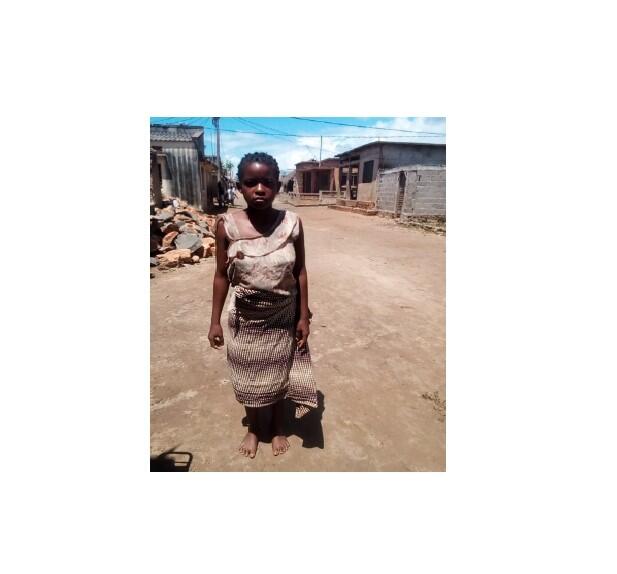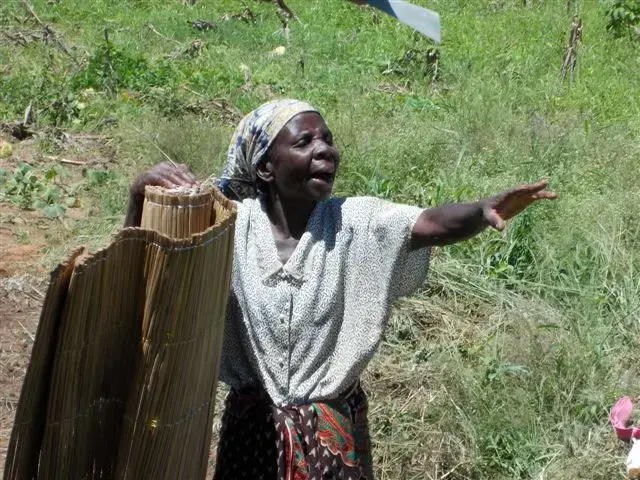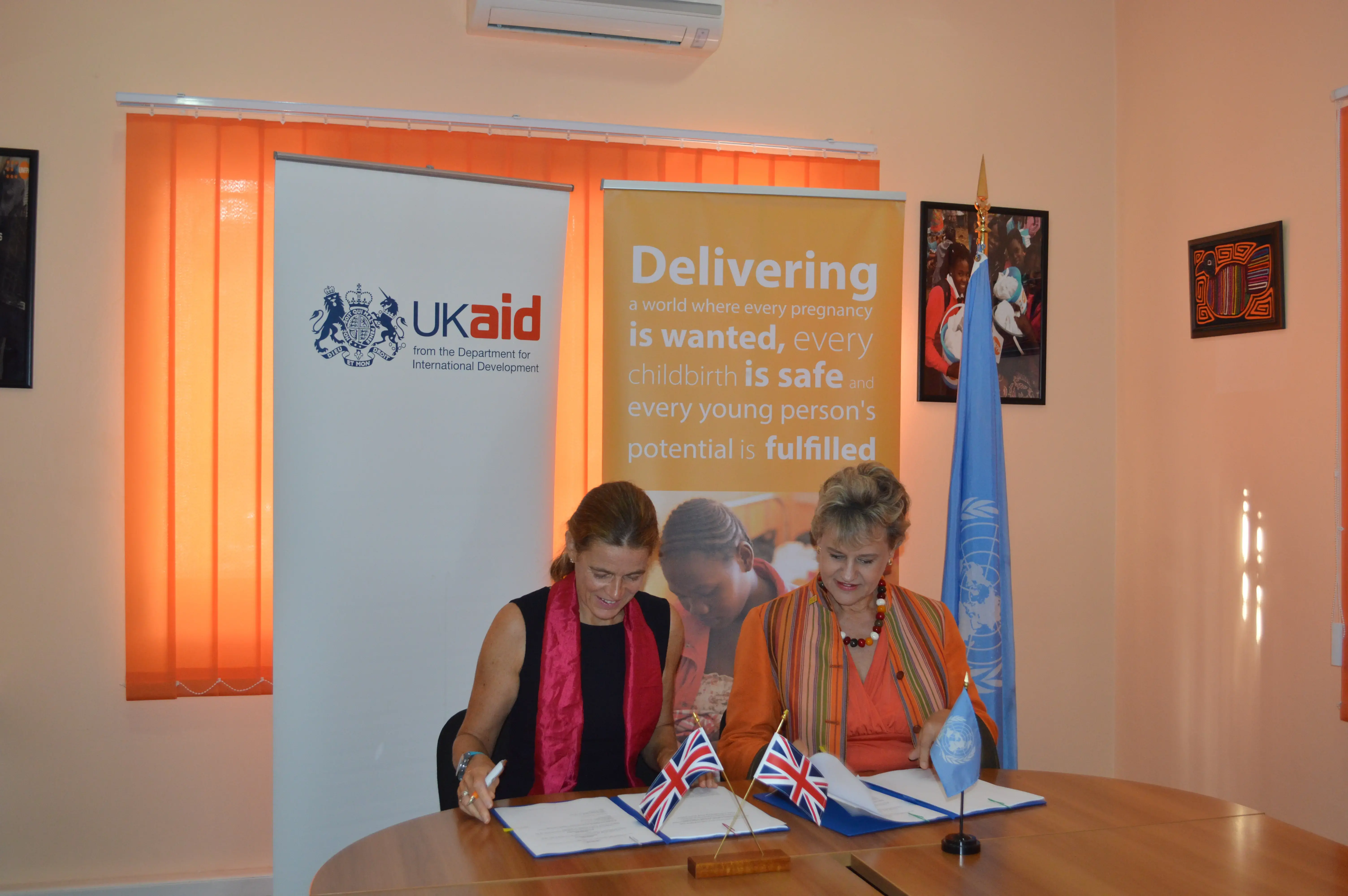Opinion-Editorial in commemoration of International Day of the Girl Child
Andrea M. Wojnar, UNFPA Mozambique, Resident Representative
In Mozambique, rates of child marriage are high — one in three girls between the ages of 20 and 24 are already married. As many as 46% of girls aged 20-24 years have had a baby by their 15th birthday. These girls are robbed of their ability to make their own choices about when to have children and are often forced to drop out of school, while their more fortunate peers are getting ready to enter their final year of high school and dreaming of making their life aspirations a reality.
Worldwide, an estimated 16 million girls between 15 and 19 years old give birth each year, with 90% of those births occurring within marriage (Girlhood, Not Motherhood, UNFPA 2015). This is not an issue of “unwed” teen mothers. The data show the issue is one of teens being forced to marry too soon. Globally, inequality of rights and opportunities between boys and girls begins at a young age and negatively affects many aspects of a girl's life from formal education to health to socioeconomic status.
The ability of girls and women to control their own bodies is fundamental to their empowerment. Protecting and promoting reproductive rights – including the right to decide the number, timing, and spacing of children – is essential to ensuring women’s and girls’ freedom to participate fully in society.
In Mozambique, girls drop out of school at a higher rate than boys, because of early marriage or early pregnancy or because they are forced to take on domestic responsibilities that inhibit them from attending school. These lost educational opportunities sap the development of the whole country. Identifying, empowering, and enabling these girls to reach their full potential positions the country as a whole to meet its potential.
I met one of these at-risk girls on a recent trip to Nampula province in northern Mozambique. Anifa is a 17-year-old girl, who was married to a 70-year-old man before her 14th birthday in order to support her family. However, after her pregnancy, her husband abandoned her. Having barely finished primary school, Anifa was not very hopeful about her future and that of her child.
In her neighborhood, Anifa encountered mentors from the “Rapariga Biz” program, a joint Ministry of Youth, Health, Gender, and Justice effort. The mentors, girls from the communities themselves, conduct regular community dialogues to raise awareness on the importance of avoiding early marriage. Anifa was soon enrolled in mentoring sessions, held every Saturday for four months for groups of about 30 girls at a time, to talk about family planning, safe sex and, above all, the right to choose when and with whom to get married or have children. With the help of the mentors, Anifa has now returned to school – “fortunately, they offered me a space in the 5th grade.”
As the mother of two “unstoppable” girls, I am proud to lead the UNFPA team in Mozambique that helps government and other partners to transform the lives of young girls like Anifa, who can share their journeys of resilience and empowerment, and pass on these qualities to their own children.
Rapariga Biz is a joint United Nations program financed by the Kingdom of Sweden, the United Kingdom’s Department for International Development, and the Government of Canada that aims to empower 1 million girls and young women in Nampula and Zambezia by 2020. The program brings together a variety of partners to ensure that adolescent girls have access to education, health services, life skills, and human and legal rights knowledge, primarily through peer-to-peer mentorship. Initial results are demonstrating enormous decreases in early marriage and pregnancy among participants, with fewer than 5% of the over 450,000 girls reached thus far marrying or getting pregnant before age 18, with benefits that will extend throughout lifetimes.
UNFPA in Mozambique also supports the implementation of other similar projects like the Netherlands-funded My Choice program in Cabo Delgado, as well as the European Union-funded Spotlight Initiative to Eliminate Violence Against Women and Girls, which aims to accelerate prevention and response to sexual and gender-based violence and early marriage in three additional provinces.
UNFPA joined with 179 countries, multiple international organizations, and civil society activists that agreed to work together on a Programme of Action 25 years ago at the now-famous Cairo International Conference on Population and Development (ICPD). Among the top four goals is the achievement of girls' equality across the world. Next month, in November, approximately five thousand government leaders, academics, entertainers, activists, young leaders, and philanthropists, will travel to Nairobi to recommit themselves to achieving the unfinished business of the 1994 ICPD Programme of Action.
Mozambique is sending a delegation to the Nairobi Summit composed of leaders within the government and civil society along with young activists who are working hard to ensure that one day every young person in the country is able to exercise their sexual and reproductive health and rights. With these renewed engagements, Mozambique can become a model country where ALL girls are an unstoppable force for a better tomorrow.





